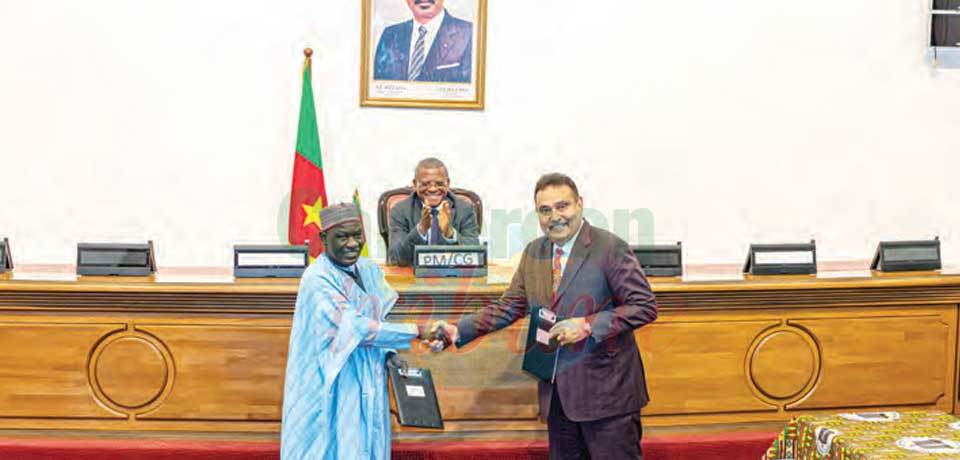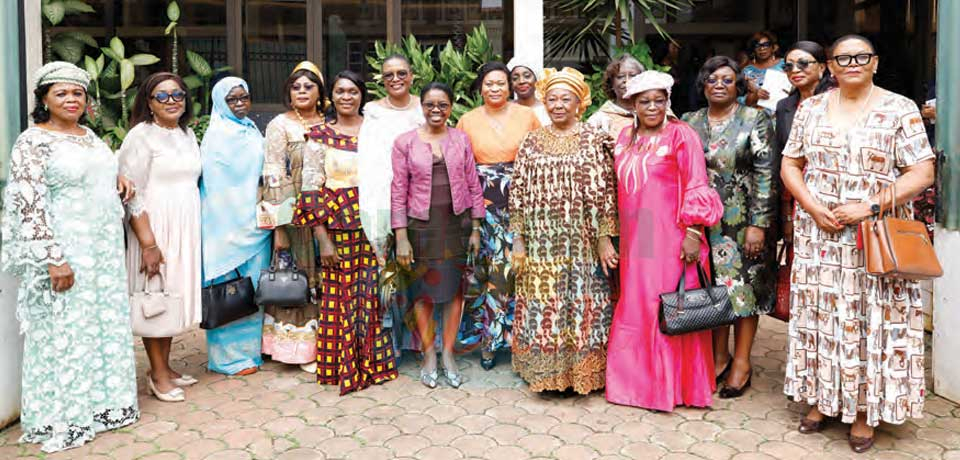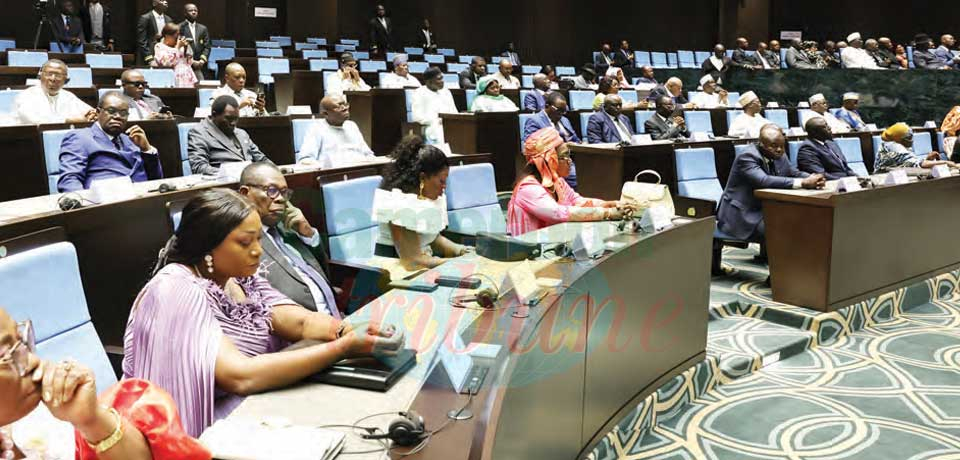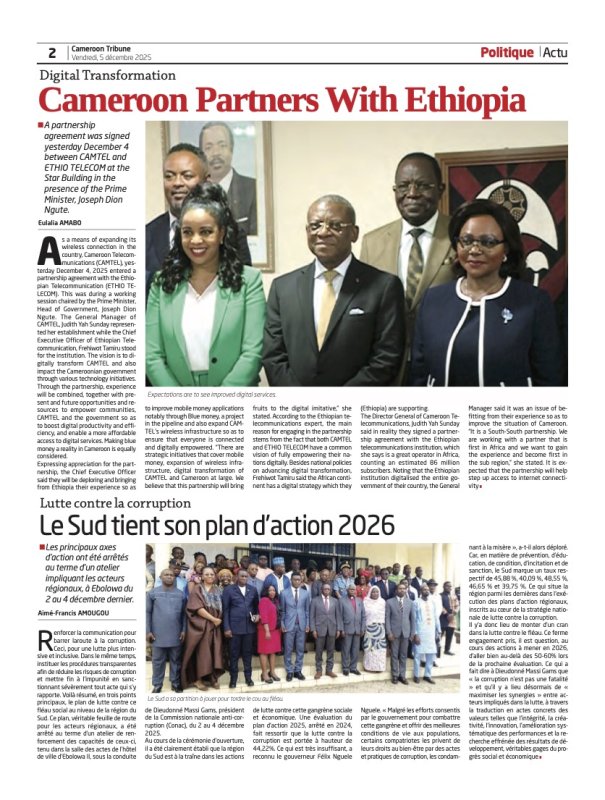Support Granted Private Media : Prime Minister Instructs Measures On Promoting Economic Viability
Below is the press release following the cabinet meeting held on May 28, 2025.
“The Premier Minister, Head of Government, His Excellency Joseph Dion Ngute, chaired a Cabinet Meeting on Wednesday 28 May 2025 at 10am in the auditorium of the Prime Minister's Office. The meeting was attended by Ministers of State, Ministers, Ministers Delegate and Secretaries of State.
The following items featured on the agenda:
1. Statement by the Minister of Communication on "constraints and strides recorded within the framework of the state institutional support to private media";
2. Statement by the Minister of Labour and Social Security on "the key areas and challenges in strengthening dialogue between public authorities, trade unions, and socioprofessional organisations";
3. Statement by the Minister of Housing and Urban Development on "the conclusions on the overall conditions regarding the management of urban waste resources and prospects"; 4. Miscellaneous.
Speaking after the Prime Minister's introductory address, the Minister of Communication provided a background for the advent of public aid to private media, highlighting that State financial support to this sector had become essential in the effort to consolidate democracy and uphold the rule of law. While this institutional assistance was previously extended to various stakeholders in the sector, it is now limited strictly to private media outlets. This shift is partly aimed at increasing the quotas allocated to eligible beneficiaries, while also reflecting institutional developments, particularly the introduction of specialised financial instruments.
Among the challenges facing this form of public support to the private media sector, the Minister specifically mentioned the State's budgetary constraints, which negatively affect the funds allocated for this initiative. While the growing number of private media outlets in recent years reflects a healthy pluralism and freedom of the press has also contributed to the gradual reduction of individual allocations.
In outlining possible solutions to enhance public support, it was noted that the effective roll-out of Digital Terrestrial Television (DTT) could help generate additional resources for the audiovisual communication sector in particular.
The Minister of Communication also identified functional shortcomings and governance issues that continue to undermine the effectiveness and efficiency of media outlets within the national media landscape. To address these challenges, corrective measures were recommended to enhance their productivity, economic viability, and overall credibility.
Next, the Minister of Labour noted that social dialogue encompasses all frameworks for engagement between representatives of workers, employers, and the government, in line with International Labour Organization (ILO) recommendations. It was further indicated that this mechanism is a tangible reality in Cameroon, as it is grounded in a clear legal and institutional framework and involves recognised formal actors. Beyond ad hoc consultations, specific dialogue platforms enable stakeholders to convene regularly to discuss matters of mutual interest. These include the National Advisory Commission on Labour, the Occupational Health and Safety Commission, the Consultation and Monitoring Committee for Social Dialogue, and Workplace Health and Safety Committees.
The range of actors involved in social dialogue is both r ich and diverse. On the workers' side, there are currently nearly 1150 trade unions and 12 confederations. On the employers' side, several employers' organisations are officially registered and are generally invited to participate in discussions relevant to their respective sectors.
At the sectoral level, staff representatives play a key role in strengthening dialogue between employers and workers. Similarly, joint committees and internal bodies established within companies contribute to addressing specific workplace issues.
The Minister of Labour and Social Security presented key achievements and data stemming from an inclusive and constructive social dialogue. By way of illustration, he cited the upward revision of the Guaranteed Minimum Interprofessional Wage (SMIG) and improvements in the remuneration of State employees. He also noted that, in recent years, 17 collective agreements establishing favourable working conditions have been signed across six sectors of activity.
However, he stressed that a lack of awareness for the legal provisions governing the right to strike, as well as delays in organising staff representative elections, remain challenges that in some cases hinder the effective conduct of social dialogue.
In her presentation, the Minister of Housing and Urban Development stated that, amid recurrent episodes of insalubrity in major cities, the conference on urban waste management, held from 6 to 7 May 2025, aimed to promote a paradigm shift in mindset and approaches. It sought to demonstrate that...
Cet article complet est réservé aux abonnés
Déjà abonné ? Identifiez-vous >
Accédez en illimité à Cameroon Tribune Digital à partir de 26250 FCFA
Je M'abonne1 minute suffit pour vous abonner à Cameroon Tribune Digital !
- Votre numéro spécial cameroon-tribune en version numérique
- Des encarts
- Des appels d'offres exclusives
- D'avant-première (accès 24h avant la publication)
- Des éditions consultables sur tous supports (smartphone, tablettes, PC)














Commentaires